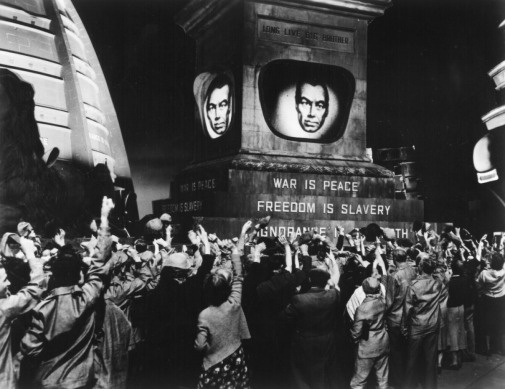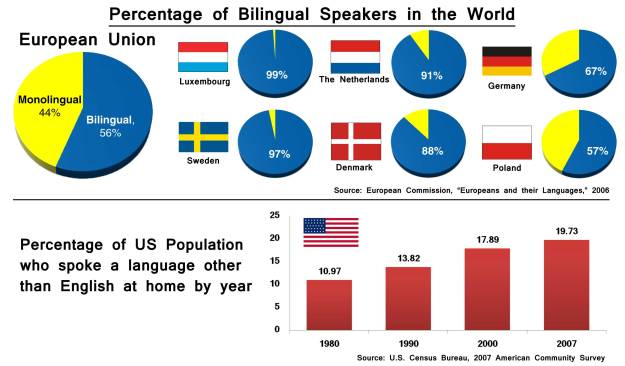A.I. and Robots

Cut from Ex Machina (Alex Garland, 2014)
Imagine a world where everyone owns a robotic butler, an automatic car or an intelligent house. This future scenario here depicted seems to get closer every day, a life defined by the omnipresence of mechanization and autonomous intelligent machines. However, it has become necessary to evaluate this phenomenon closely.
To begin with, an ideal situation is depicted: making all the workforce artificial will liberate plenty of time for humans. This is the world where leisure is what people are occupied in, finally able to entirely dedicate ourselves to personal, familiar and social welfare -all of this progress thanks to the dramatic increase of productivity and production and the derived growth of general wealth.
However, this view is optimistic and superficial. Humans having that amount of free time can only be explained by the absence of work, which means one thing: massive unemployment. The fact that robots work more efficiently than anyone means that we are no longer necessary while at the same time completely dependent on the owner of the machines. What is more, if AI develops enough, it will make the owner dispensable. In this case, our entire existence will be determined by an extremely advanced computer.
In light of the above, it is not hard to think about a future where humans are enslaved by machines (a very common topic in Sci-Fi novels) and it is therefore crucial to design any autonomous device as carefully as possible.
Alberto A.
Outer space exploration and colonization

“Do Androids Dream of Electric Sheep?”, “I, Robot”, “The Foundation Trilogy”, “The Martian”, “2001: A Space Odyssey” -these are just some of the many novels in which humans have conquered space and colonized other planets. For sci-fi writers it seems obvious that sooner or later, in one way or another, humans will start a space colonization mission and, as time passes by, they seem to be right. But what could the consequences of these missions be?
At first glance the positive aspects seem obvious: new materials and minerals would be at our reach. This means cheaper ways of production and new items available to purchase, which could start to shape a change in our lives. As a consequence, many companies would be interested in exploiting new planets, and they would start developing new space programs and, most importantly, jobs. Migration would as well solve our overpopulation problem. With a new, better life in the horizon who would reject moving to Mars?
However it could turn out in a way which could degenerate our lives. The opportunity of acquiring new materials could be interpreted by companies as a way to increment their income, being tempted to offer jobs on conditions similar to those of a slave and dividing society once again into the upper and lower classes, as happened during the industrial revolution.
Something else to take into account is the military consequences of space colonization. Driven by economic and political benefits any nation could start adapting its army to a space war, the limits of the Outer Space Treaty would become arguable and we would no longer be safe from a missile attack sent from outer space.
In the end it all comes down to one point: will we be able to cooperate to get the largest benefit or will we let our differences divide us? We, as humans, have a lot to win with these programs if they are applied correctly, so it’s our responsibility and in our best interests to demand the respect we deserve to those in power.
Javier S.
Let’s save humankind

The Earth is dying. Year after year, the human population increases and our resources decrease just as fast. On top of that, CO2 emissions add to global warming. Currently, some people are trying to stop this, but it may already be too late. The solution? Outer space exploration and colonization.
Many with traditional ideologies might oppose this idea due to the difficulty of maintaining habits from their respective cultures. At the same time, it is also possible that we might experience the dangers of outer space, which can happen with the collision of debris into spacecrafts, or a miscalculation of the orbits. Another negative consequence of leaving Earth could be the necessity of creating a new set of political arrangements, which might be ambiguous and cause conflicts between multiple countries.
On the other hand, the positive effects of outer space exploration completely eclipse the mentioned downsides. These includes the potential of solving the issue of overpopulation as well as the possibility of exploiting new resources. These options could also be assisted by the amount of research, which can at the same time accelerate the pace of evolution. And also, who knows whether or not we´ll find extraterrestrial beings?
Therefore, the most logical solution is to leave Earth in order to assure our wellbeing, because in the end, it´s all about the survival of the fittest. Why shouldn´t we use the resources we have left?
Jordi L.
The advantages of multilingual programs

English is pretty much the default language nowadays, everywhere we go. It is taught in almost every school in the world, and a requirement in most job application processes. It should be taken for granted that everyone has a proficient level, and yet this isn’t the case, especially in Spain. Our educational system is heavily focused on college admissions, instead of the many opportunities students will miss in the future due to the fact that they didn’t learn proper English in the past.
Research shows that people who are enrolled in multilingual programs, or that are fluent in more than one language, are three times more efficient in problem-solving and dealing with complex tasks. This, combined with the many benefits of speaking multiple languages, such as communication, is big enough a reason to prioritize bilingual programs.
But one thing should be kept in mind: this kind of educational programs should be efficient. It’s not enough to have two or three one-hour-long sessions a week -the modern language and the new one should be at the same level and the same amount of time should be dedicated to each.
In summary, the key to prepare students with high language levels is to develop modern, innovative programs that enhance students’ abilities not only at a classroom level, but in all aspects of life.
Elena A.
Colloquium on Utopia and Dystopia

Scene from 1984 (Michael Anderson, 1956), based on George Orwell’s homonymous novel
Novels that portray dystopian realities are some of the most popular works of fiction, with newcomers such as “The Hunger Games” or the “Divergent” series, and even timeless legends such as George Orwell’s “1984” or Aldous Huxley’s “Brave New World”. However, how much longer will it be until these novels cease being fiction and turn into reality?
Obviously, Orwell’s predictions of the world in “1984” thankfully didn’t happen. That said, very much like in his magnum opus, we in the 21st century are in a constant state of war, be it for its commercial value or to keep citizens brainwashed. We wage war for its benefits.
The second point I would like to make is how desensitized our society has become towards violence. It isn’t strange to see gruesome images of violence in newspapers, on the lunchtime news reports or on the internet.
Thirdly, speaking of news, it has basically become gossip. We are distanced from real, important events and issues with foolish, mindless entertainment, such as in “Fahrenheit 451” or “Brave New World”, where the saying “ignorance is bliss”, really come to life.
Yes, we still have our freedoms and our constitutions in most developed countries. But, for how long? How long until we are run like mindless slaves? I think these dystopian fantasies are closer to being our reality than we’d like to think.
Francisco S.
Where do you live? No, I wasn’t asking the exact place, I pretended to make you think of the kind of society in which you are living. Is it perfect? Of course not. Utopia is just a hypothetical term used to describe a place where everything goes as well as it could, but that is just an idealized world, an impossible objective.
The reality is that humans are dissatisfied by nature. We always try to get our objectives, and when we get them we establish new, harder ones. This means we act according to our instinct in some way. In a utopian world, everyone would be happy, and no one would have more power than others, because that’d mean inequality. However, humans as we are, everyone would have new objectives to reach, and their effort to grow would provoke an unequal society again.
Besides, if everyone was equal, some people would take advantage of their strength to get the power, creating a kind of tyrannical or totalitarian government, very far from utopia.
We could say, as a summary, that utopia is impossible to get not only because we are far from that perfect objective, but also because of human nature.
Pepe G.
2048, the near future

Cut from Blade Runner 2049 (Denis Villeneuve, 2017). Overview of the city
It’s 2048. You get out of your fully electric Honda Ion and plug it into a charging station at the edge of the sidewalk. Walking into your apartment complex, your automated clerk/receptionist gives you a package and, from the corner of your eye, you catch a glimpse of a holographic screen with the news: crime is down by 70% since the last four years. It sounds like a dream, doesn’t it? Well, if we play our cards right, in 30 years we may have much, much more than this.
With the current advances we are making, completely green cities are already in existence. It means it is only a matter of time, maybe a decade or two, before everything is powered by new, renewable and green energy. On top of that, electric cars will probably dominate the roads and maybe even the skies. Mixed with the amount of research, development and innovation going into technology, robotic assistants, limbs and other technologies will also be ready in a not-so-distant future.
But technology isn’t the only thing that matters. Yes, we will probably cure cancer in thirty years, but what about the tumors that plague our society and politics? I feel that in a few decades, a new generation will be in power. A generation that only believes in going forward in any possible way. In thirty years, with luck and hard work, we could solve issues such as poverty, world hunger, racism, sexism and corruption, ensuring a clean, diverse and safe society. We could develop a fair voting system, ensure fair legislations and maybe politicians will learn to compromise so as to keep everything moving.
This sounds like a fantasy, too good to be true. The fact is it’s not. It’s perfectly plausible. However, if we don’t play our cards right, if we let corruption, hatred and war gnaw on our system, we might be in a completely opposite scenario: one where the human race has been decimated by its own kind and where the few survivors won’t survive the nuclear fallout.
Francisco S.
Colloquium on Multilingualism

Multilingualism is the use of more than one language, either by an individual speaker or by a community of speakers. Nowadays multilingualism is conquering educational programs and there is a debate whether this is correct or, on the contrary, monolingual education is better. In my opinion, learning more than one language has more advantages than disadvantages.
It is a well-known fact that in our world it is necessary to be multilingual if you don´t want to be left behind. An example of this is when you want to get a job because, as everyone knows, employers prefer to hire people that can use more than one language.
When we go to school we learn a lot of subjects, we enlighten ourselves. Therefore, there isn´t a better way to know about a culture (literature, art,…) than having direct access to it. That means that, for example, you are going to understand Vladimir Nabokov´s literary style if you read his “Lolita” in its original language than if you read a translation.
Let us now move to an important concept: ‘split personality.’ As BBC explains in an article, ‘split personality’ is the quality that lets multilingual people travel to a country or place depending on the language that they are using. Let us suppose that someone asks you what is your favorite food in English. In this situation you are going to think about a food you like but at the time, you are going to relate this food with England. ‘Split personality’ is a complex skill but the fact is that it reveals that there are a lot of cognitive qualities associated to multilingualism that are just starting to be discovered and that we should start developing when we go to school.
From what has been said, it can be seen that multilingual educational programs, if they let students have enough hours of every subject, is becoming a social phenomenon governed by the needs of globalization and cultural opening, and I´m in favour of them.
Aitana V.
What can you do nowadays if you can only speak one language? Very few things out of your country. Languages are a very important aspect of our daily lives, they are necessary to travel and they can bring advantages to find more jobs.
It’s true that bilingual and multilingual education plans have less hours to work other subjects, and that the kids will have a larger amount of work because they have more subjects to study. But apart from this, all’s advantages.
One of them is that students develop better communication skills. They can talk with people from different countries with no problem and they will have the opportunity to meet new people that they wouldn’t have met if they hadn’t learnt the language. Also, there are studies that show that the brains of people who know more than one language are fitter and have skills to block the disturbing noises to get the information they want.
Knowing many languages can give you access to jobs where languages are necessary and give you opportunities to travel to new places and even live abroad and learn different cultures and lifestyles.
All of this makes us think that multilingual education must be mandatory. It’s very important to take advantage of the age of the kids because while they are younger, learning languages is easier and faster.
Eider V.
Hallo gehachte leezer. That is a sentence in Dutch which means ‘hello dear reader. ‘ Something most people are not capable of understanding. The reason for that: lack of multilingualism, a problem caused by education centers unwilling to teach many languages because of the time it would take out of other subjects such as Maths or History. That leads to controversy among people who defend the idea of monolingualism and those who don´t, but I will explain why an equilibrium between both is the solution.
Firstly, it´s a common thought that learning more languages at school will decrease the students’ performance in other subjects. However, if a student is willing to take that risk, it shouldn’t be fair for an educational institution to deny them the right to learn that. What they should be doing is figuring out a way to achieve that goal with the minimum cost of performance, because that would widen the students´ opportunities in, for example, applying for a university or traveling around the world.
Another reason why multilingualism should be limited and monolingualism avoided is to contribute to the relations with other countries. For example, certain economical sectors wouldn´t be available due to low language proficiency, which has been the case in many Asian countries. The main concern about exploiting these possibilities is education, which reinforces the point that mixing both ideas is necessary.
Lastly, it´s needless to say that learning new languages leads to a more profound base of cultural knowledge thanks to reading varied literature and/or travelling. Therefore, to become a more knowledgeable person in general, multilingualism is an option which should be taken into account.
In summary, in order to give more opportunities to students while minimalizing the risks, educational centers should try to find a balance between monolinguistic programs and multilinguistic ones.
Jordi L.
The Butterfly Effect

The Butterfly Effect (2004), starring Ashton Kutcher and Amy Smart
It has been said that the flutter of the wings of a butterfly can provoke a typhoon half the world away. So, minor changes can lead to a snowball effect and create whole new situations, and that´s why, if given the opportunity, I wouldn’t change my past.
Firstly, if you changed something in your past because something in the present troubles you, there´s almost no probability that you´d create a new perfect situation, because this change would trigger something you might want to change again, or it could just lead you to skip an important event in your life such as finding your significant other half or getting something you wanted.
So, there´s only one prediction we can make about life: it is unpredictable and we should try and see the beauty of this chaos instead of wanting to control it.
María M. A.
It tolls for thee
 Title: For Whom the Bell Tolls
Title: For Whom the Bell Tolls
Author: Ernest Hemingway
Publisher: Arrow Books
Genre: Historical Novel
Year: 1941
Pages: 492
“No man is an island, entire of itself. Each is a piece of the continent… therefore, send not to know for whom the bell tolls, it tolls for thee.” This quote by John Donne inspired Hemingway’s novel, which tells us about death and suicide but, above all, it shows the devastating consequences of war.
For Whom the Bell Tolls is set during the Spanish Civil War and the plot shows a parallel development with the war itself. At the beginning, Jordan and the Republican guerrillas go through an optimistic stage but later the Fascist forces overwhelm the protagonist, pushing him into a dark fate. Furthermore, the novel is not a mere fictional book but a primary historical source whose content has been key to understanding our contemporary context.
What is thrilling about this novel is its clear and concise writing style. Ernest Hemingway’s style is one of the main attractions of the book: not a single barroquity or pompouse adjective is found. The direct grammar drives us into the vertiginous relationship between Jordan and Maria within the implacable civil war. What’s more, some characters -such as Anselmo or Pilar- are so well depicted that they accurately embody traditional Spanish stereotypes and characteristics. It seems you could come across them round the corner.
Even though it is a historical novel, it can not be regarded as objective nonfiction. The Spanish Civil War was the consequence of a geographic and historical framework which divided the country and the people, making foreign volunteers become nothing more than mere spectators.
Alberto A.




Debe estar conectado para enviar un comentario.